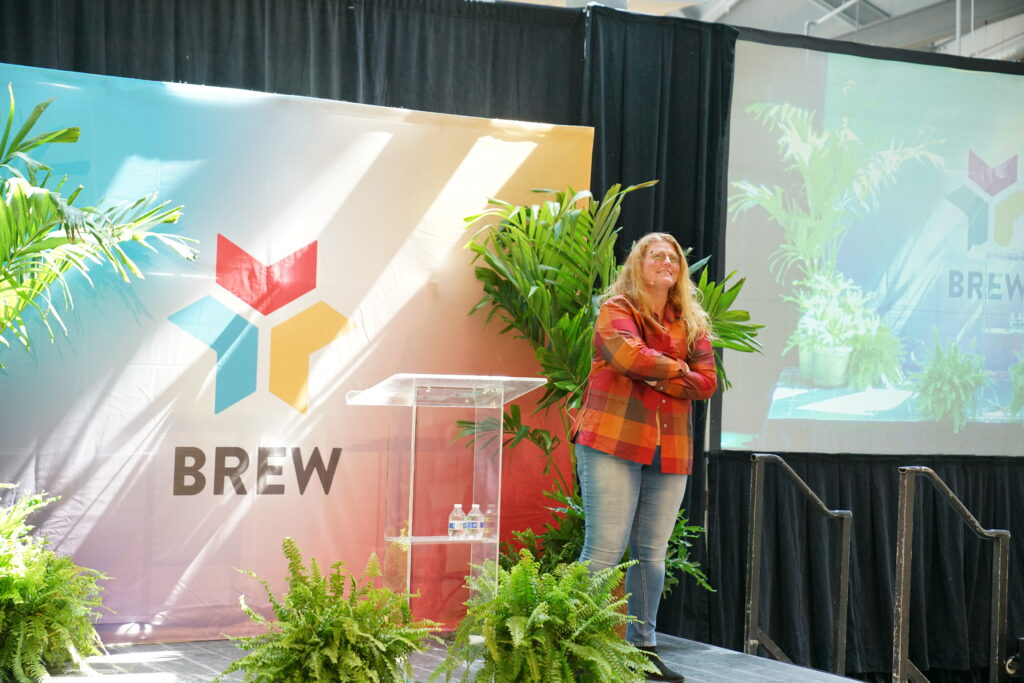Use your power once you are in the room where decisions are made.
That’s the lesson Covalent Logic founder and President Stafford Wood shared at BREW 11 during her talk “Being in the Room Where It Happens.”
To Stafford, using your power means speaking up and sharing your perspective.
“Inside the room, you are one of us, and you get to tell us what you think,” she says. “But too many people do not see getting in the door as being permission to speak freely.”
Getting Into the Room
Stafford didn’t intend to become an entrepreneur. But after Hurricane Katrina, she found that the qualities that held her back in the corporate world — the belief she’s the smartest person in the room and telling people what to do with no filter — are benefits as an entrepreneur and a consultant.
“It turned out to be really handy when you are an entrepreneur and a consultant because they expect you to be the smartest person in the room,” she says. “They expect you to tell you the truth. They expect you to tell them what to do.”
All businesses sell two essential elements — time and the intelligence of your employees. Stafford believes in empowering clients to solve their own problems independently of her advice. Then she proposes her services as an additional benefit.
“When someone tells me they are hungry, I look in their pantry, and I tell them that they could, with this bread and that jelly and that peanut butter, make themselves a sandwich,” Stafford says. “Or, I could make you the Elvis special because I know exactly how to slice the bananas to put them on your peanut butter and bread, and I have some bananas right here.”
Clients respond well to this approach because they don’t have the time to meet that need themselves. They also perceive that, because Stafford and her team have the experience, their product will be better than anything clients would come up with on their own.
“Value everyone, every relationship, and take every opportunity,” she says. “Saying ‘yes’ gets you in the room.”
What to Do Once You Get There
Once you are in the room, what do you do next?
Don’t assess the room for an internal hierarchy or internalize the belief that you don’t have a place there, Stafford says, because those thought processes waste the opportunity to influence the proceedings.
“Use the power. Use the opportunity,” she says. “Say the thing, and you will either impress someone, or you will leave the room dissatisfied. Either way, you got in the room.”
Regardless of the result, speaking up in the room gives you practice in stating your case. And while your presence in the first room may be by happenstance, leverage that experience to get into the next room, Stafford says.
“That trail only happens if you are vulnerable, if you are honest, and if you go in sharing what you’ve got with the thought that more ideas will come to you,” she says.




